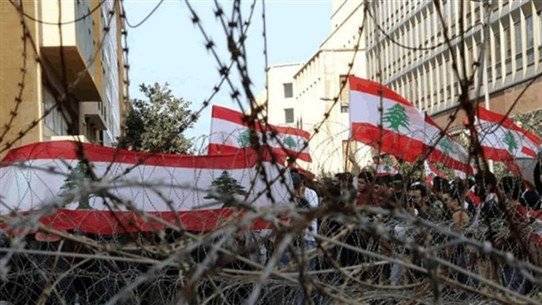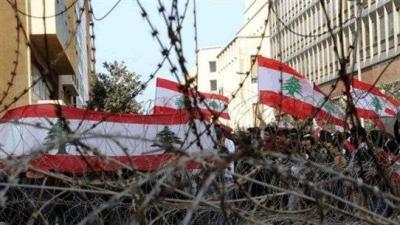In Lebanon, fears are escalating over a security breakdown that could lead to chaos, which security forces may be unable to control. This concern comes amid rising poverty rates and a significant decrease in the value of salaries for security personnel, where the salary of a soldier in the Lebanese Army has dwindled to no more than $33, with the dollar exchange rate surpassing 38,000 Lebanese pounds.
The situation has been exacerbated by incidents over the past weekend involving several banks being stormed by depositors who took staff hostage, threatening them with weapons to retrieve their deposits that have been inaccessible since 2019. Many believe that controlling this phenomenon will be difficult, as the majority of these depositors are convinced they won't see their funds anytime soon, given the government's reluctance to approve a clear financial recovery plan over three years into the crisis.
This phenomenon coincides with increased rates of robbery and theft, with a source from the "Change" bloc of lawmakers suggesting that these rates might rise as the exchange rate continues to skyrocket. The source told "Asharq Al-Awsat" that the World Bank had requested several experts to study the worst-case scenarios Lebanon could face if the collapse continues. Three scenarios were established; the first one was surpassed two years ago, the second was reached about six months ago, and the third, the most feared scenario, predicts significant security chaos potentially emanating from the city of Tripoli and spreading to Palestinian camps, impacting all areas, with security forces unable to control it and apprehend wanted individuals, particularly amid the extremely poor living conditions of security personnel.
The source noted that the "Change" lawmakers, in their discussions with political leaders to explain their presidential initiative, warned them of this scenario, indicating that self-security and local leaders may emerge as a response. The only way to prevent reaching this stage of collapse, they asserted, is to promptly elect a president, form a government, approve a recovery plan, and sign an agreement with the International Monetary Fund. Otherwise, they warned, the country heads towards chaos.
Interior Minister in the caretaker government, Bassam Mawlawi, did not conceal that "the social crises stemming from the known financial and economic realities make us wary of the possibility of chaos, thus the security apparatuses remain alert and ready, and this is their duty." He reiterated in a statement to "Asharq Al-Awsat" that the Ministry of Interior and security forces will continue to fulfill their responsibilities in maintaining security and order despite the difficult circumstances, emphasizing that "Lebanese people do not want war, and the security reports we monitor daily do not indicate expectations of security events."
Mawlawi added, "We rely on the patriotism of security forces and the awareness of their leaders, who remain informed and ready to serve the homeland and protect the community, while we work with security and military leaders to secure the needs of security personnel in terms of fuel, medical services, and adjusting salaries despite the challenges."
Riyad Kahwaji, head of the "Middle East and Gulf Center for Military Analysis - Enigma," views the sudden spikes in the dollar without clarity on any ceiling for its rise as factors worsening the already difficult conditions for people due to treasury bankruptcy, lack of revenues, and growing debts. He noted that with salaries becoming nearly worthless, and the government's failure to revive the country and resorting to liquidating people's deposits, there is a genuine fear of chaos, whether as a reaction to people's suffering or due to internal parties seeking to exacerbate the situation at the end of the current presidential term, to create justifications to keep the current president in the palace or form a government in a distorted manner.
Kahwaji warned in a statement to "Asharq Al-Awsat" that the situation is serious and growing more dangerous with the passage of days, threatening to erode the state's identity and undermine its entity. Similarly, Dr. Hisham Jaber, retired brigadier general and head of the "Middle East Center for Strategic Studies," regards the banking situation as natural and expected, predicting it will persist but clarifying that it does not indicate security chaos but rather a security breakdown that will worsen day by day like a snowball growing due to poverty and need. He confidently stated that the army and security forces are capable of preventing chaos, adding in a statement to "Asharq Al-Awsat": "We expected worse in terms of security over the past three years... Only the election of a new president and the formation of a new government can help us contain the situation and prevent its deterioration."




